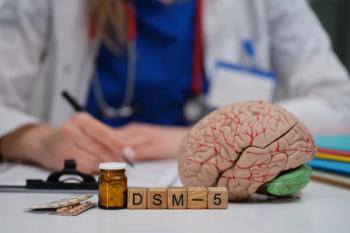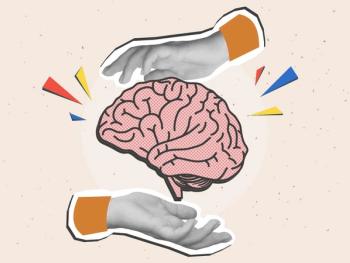
Psychotherapy: A Core Psychiatric Treatment
How important is psychotherapy today?
AFFIRMING PSYCHIATRY
A frequent criticism of psychiatry is that psychiatrists do not learn, practice, or value
In the mid-20th century, psychotherapy was the treatment of choice for most mental disorders. Even after the development of the first effective
The idea that psychiatry is currently divorced from psychotherapy is, in fact, divorced from reality. Here are 4 fundamental examples of the union between psychiatry and psychotherapy:
1. Psychiatry residents receive significant formal instruction in psychotherapy.
One of us (DM) is director of residency training at a psychiatry department in the northeast, and the other (MR) teaches in that program and also serves as codirector of the psychotherapy track for a psychiatry residency program in Florida. As such, we have direct knowledge of the quality and extent of training psychiatry residents receive in psychotherapy. By contrast, most critics of psychiatry do not teach in psychiatry departments and have little to no firsthand knowledge of psychiatric residency curriculum.
Training in supportive, psychodynamic, and cognitive-behavioral psychotherapy is nationally mandated for all psychiatry residents.6 Residents must also learn to integrate psychotherapy with
Approximately 1 quarter of psychiatry residencies also offer specific psychotherapy tracks for residents with particular interest in psychotherapy and for those who plan to pursue additional training in specific psychotherapies (eg, psychoanalytic training) postresidency.7 Many individuals, even mental health professionals, assume psychotherapy training is weaker for psychiatry than for other mental health disciples such as psychology and social work. Yet a national survey conducted in 2006 showed that psychiatry compared favorably to other disciplines for evidence-based forms of therapy training.8,9 Thus, the claim that psychiatrists do not learn psychotherapy is false.
2. Psychotherapy is a part of almost all clinical interactions.
While it is true that most psychiatrists nowadays do not offer traditional 45- or 60-minute psychotherapy appointments to all their patients,10 psychotherapy continues to be practiced in some form by most psychiatrists. From a psychodynamic perspective, every interaction between doctor and patient, even in the hospital setting, is an opportunity to relate to the patient psychotherapeutically. Sudak and Taormina11 have described the integration of cognitive-behavioral therapy into “medication management” visits, and Iannitelli and colleagues12 have recently discussed the application of psychodynamic principles during psychopharmacological treatment.
Undoubtedly, most psychiatrists engage in some supportive
3. In the past decade, there has been a resurgence of interest in psychotherapy and psychosocial approaches among psychiatry residents.
A 2012 survey of residents reported that 82% of them consider “psychotherapy to be integral to their identity as psychiatrists.”13 Another survey showed that residents want more psychotherapy training rather than less.14 Our experience matches the results of such research. In fact, we have observed an increasing number of psychiatry residents interested in learning and practicing psychotherapy during the past decade.
In recent years, psychiatry has become a popular and competitive specialty choice among medical students, who describe their interest in learning the art of engaging deeply with suffering patients and combining psychosocial treatments with biological interventions. Many residents are particularly eager to learn psychotherapy methods and rightfully view psychotherapy as a core, foundational skill in the practice of clinical psychiatry. Meanwhile, some professional organizations are specifically devoted to the advancement of psychotherapy training within psychiatry, such as the American Academy of Psychodynamic Psychiatry and Psychoanalysis.
4. Many leading psychotherapy scholars are psychiatrists, and this has been the case for decades.
Some of the leading figures in American and global psychotherapy are psychiatrists, including Otto Kernberg, MD; Glen Gabbard, MD; and the recently deceased
Concluding Thoughts
Psychotherapy continues to be a core aspect of psychiatrists’ training and identity. Psychotherapy training also continues to be a substantial and mandatory component of residency training for all psychiatrists. Contrary to popular assumptions, it is not critical that all psychiatrists practice traditional psychotherapy as part of their practice. No one becomes alarmed if all cardiologists do not practice cardiac catheterization, and no one should worry that “only” half of all psychiatrists currently offer traditional 45-minute psychotherapy sessions. But all psychiatrists should continue to support psychotherapy’s place in mental health treatment, and its place in the holistic, biopsychosocial treatment that psychiatrists routinely offer.
For decades, both critics and leading psychiatrists have worried that psychotherapy among psychiatrists will one day die out and be forgotten. Yet for decades, reports of its demise have been greatly exaggerated.
Dr Ruffalo is instructor of psychiatry at the University of Central Florida College of Medicine in Orlando and adjunct instructor of psychiatry at Tufts University School of Medicine in Boston. He is a psychoanalytic psychotherapist in private practice in Tampa. He can be reached at
References
1. Carlat D. Unhinged: The Trouble with Psychiatry. Simon & Schuster; 2010.
2. Breggin P. Toxic Psychiatry. St. Martin’s Press; 1991.
3. Luhrmann T. Of Two Minds: An Anthropologist Looks at American Psychiatry. Vintage; 2001.
4. Whitaker R. Mad in America: Bad Science, Bad Medicine, and the Enduring Mistreatment of the Mentally Ill. Perseus; 2002.
5. Harris G. Talk doesn’t pay, so psychiatry turns instead to drug therapy. The New York Times. March 5, 2011. Accessed May 4, 2022.
6. ACGME program requirements for graduate medical education in psychiatry. 2021. Accessed May 4, 2022.
7. Rim JI, Cabaniss DL, Topor D.
8. Weissman MM, Verdeli H, Gameroff MJ, et al.
9. Weissman MM.
10. Tadmon D, Olfson M.
11. Sudak D, Taormina S.
12. Iannitelli A, Parnanzone S, Pizziconi G, et al.
13. Lanouette NM, Calabrese C, Sciolla AF, et al.
14. Kovach JG, Dubin WR, Combs CJ.
15. Prosser A, Helfer B, Leucht S.
16. Miklowitz DJ, Efthimiou O, Furukawa TA, et al.
Newsletter
Receive trusted psychiatric news, expert analysis, and clinical insights — subscribe today to support your practice and your patients.







